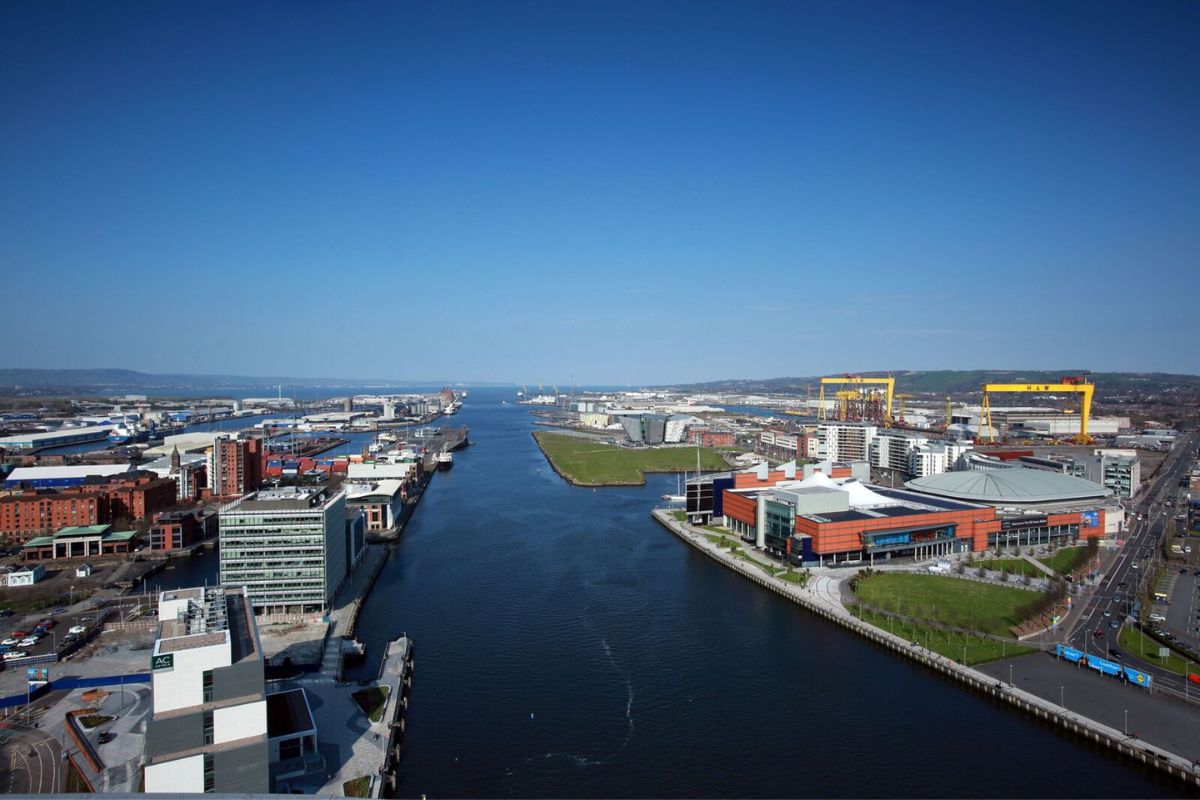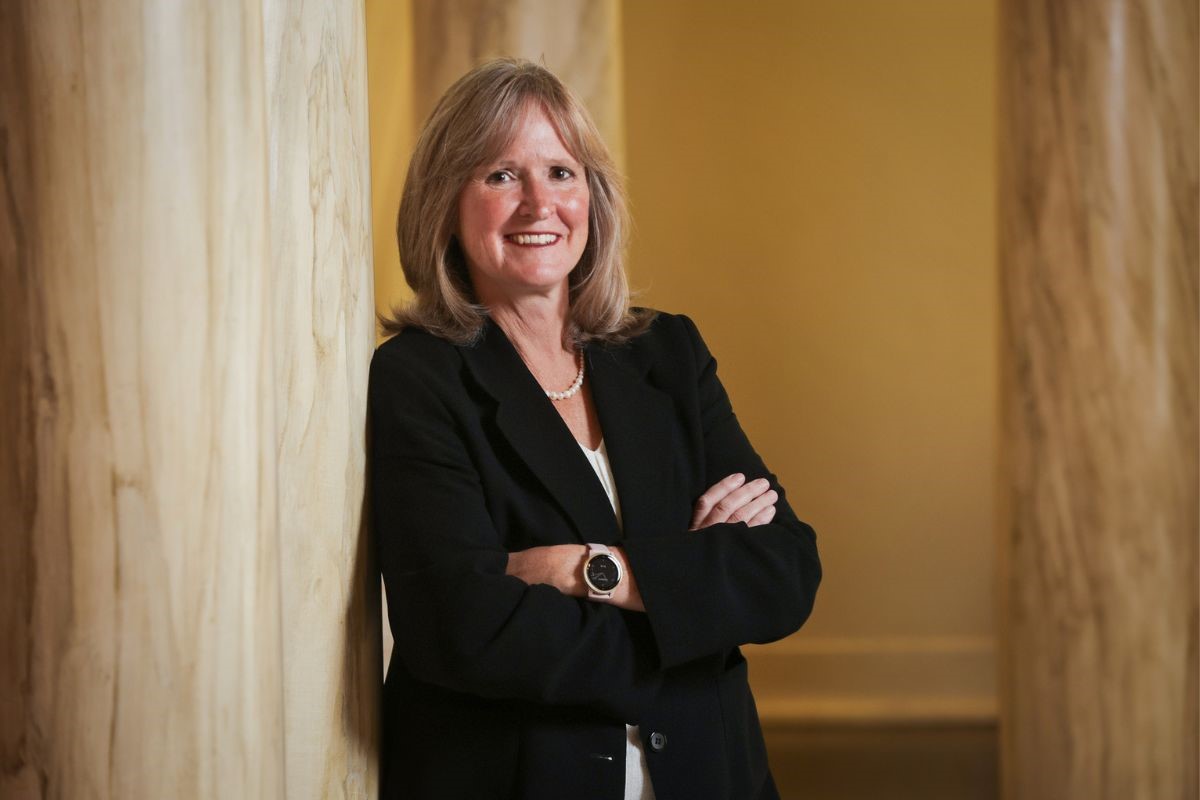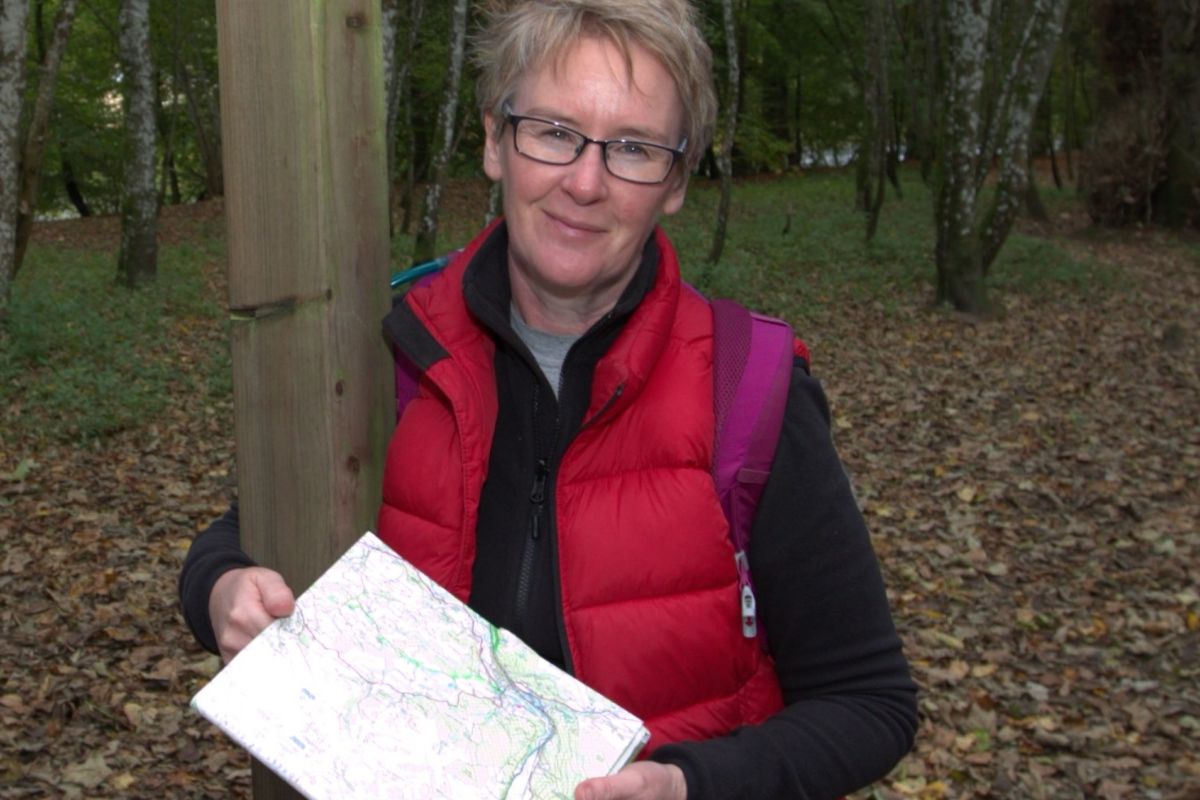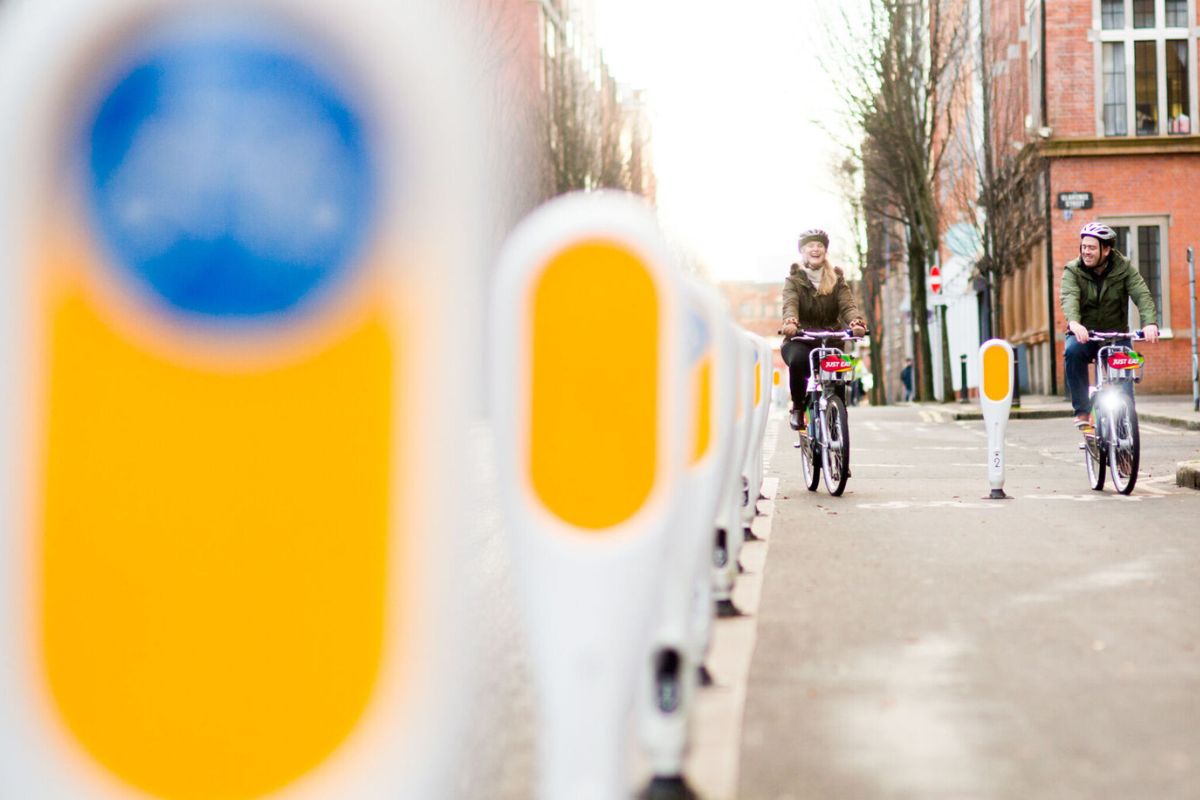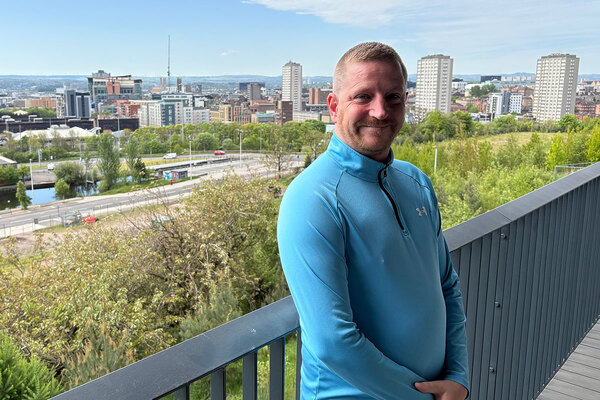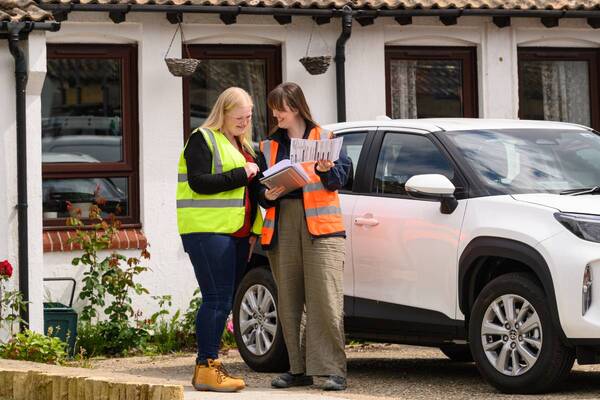Data guides our planning, but it is important to maintain the consent of residents for the change we are undertaking
The Belfast Agenda is a community plan that stretches out the approach of the city and its community partners between 2024-2028.
It boldly states that by 2035 Belfast will be a city re-imagined and resurgent defined by being a great place to live and work for everyone. At the core of this will be an emphasis on how the city tackles the issue of climate change. One of their stated aims by 2035 is to reduce the city’s carbon emissions by 80%. In the short-term they hope to reduce them by 66% by 2025.
With five core themes within the agenda (which features partners including Belfast City Council, Belfast Health and Social Care Trust, Housing Executive, the CBI and Queen’s University and Ulster University), the city is taking a holistic approach to its ambitions linking its intended actions to cover impact on people and communities, the economy, the evolution of place, respecting the planet whilst making sure Belfast remains a compassionate city.
With regards to addressing the question of climate change the work of Belfast City Council is driven through an ambition to create a sustainable, nature-positive city. Their action plans have a clear focus on re-naturing the city and increasing resilience to climate change by creating a sustainable circular economy and innovating to meet net zero. This plan is built upon the five foundations of re-naturing the city, leaving no-one behind, building city resilience, greening the economy and sustainable urbanisation.
We sat down with climate commissioner Debbie Caldwell and Brenda Roddy, climate change project officer, and lead on retrofit and zero emission transport programmes at Belfast City Council to understand a little more about their work and progress to date towards these aims.
At the centre of their approach is data and building a real detailed understanding of the city, its infrastructure and demographic profile from which to base plans on how to move to a more decarbonised future. This is based upon the production of a Local Area Energy Plan for Belfast. For those unfamiliar with such planning approaches, this is the production of a bottom-up, data-driven, whole-system approach to delivering net zero within a particular location. Whole systems planning means that all parts of the energy system are mapped including supply and demand characteristics, transport, buildings, local industry, and the environment. The aim of such an approach is to identify and outline the most cost-effective way for a local area to decarbonise and to set out an action plan for their implementation.
“Producing the plan has really strengthened our evidence base” explains Debbie, “and as a relatively new team it is important that we have a big focus on data”. The plan builds on the city’s Carbon Roadmap developed in 2020 which identified that the majority of the city’s scope 1 & 2 emissions are heavily concentrated in the built environment and transport. The roadmap provided science based emission reduction targets which have been formally adopted by the City: 66% reduction by 2025, 80% by 2030 and 100% by 2050.
The Local Area Energy Plan Debbie explains has used detailed modelling of the energy system and engagement of key stakeholders to identify five priority projects to enable the city to decarbonise in a cost effective and impactful manner. The plan provides a robust evidence base for action and the priority projects are selected on the basis of being cost effective as well as creating multiple benefits for residents. “We will also use the plan to attract private sector finance to help deliver the projects” adds Debbie, “and engage the market to help us to design the most appropriate and effective delivery models, based on robust data”.
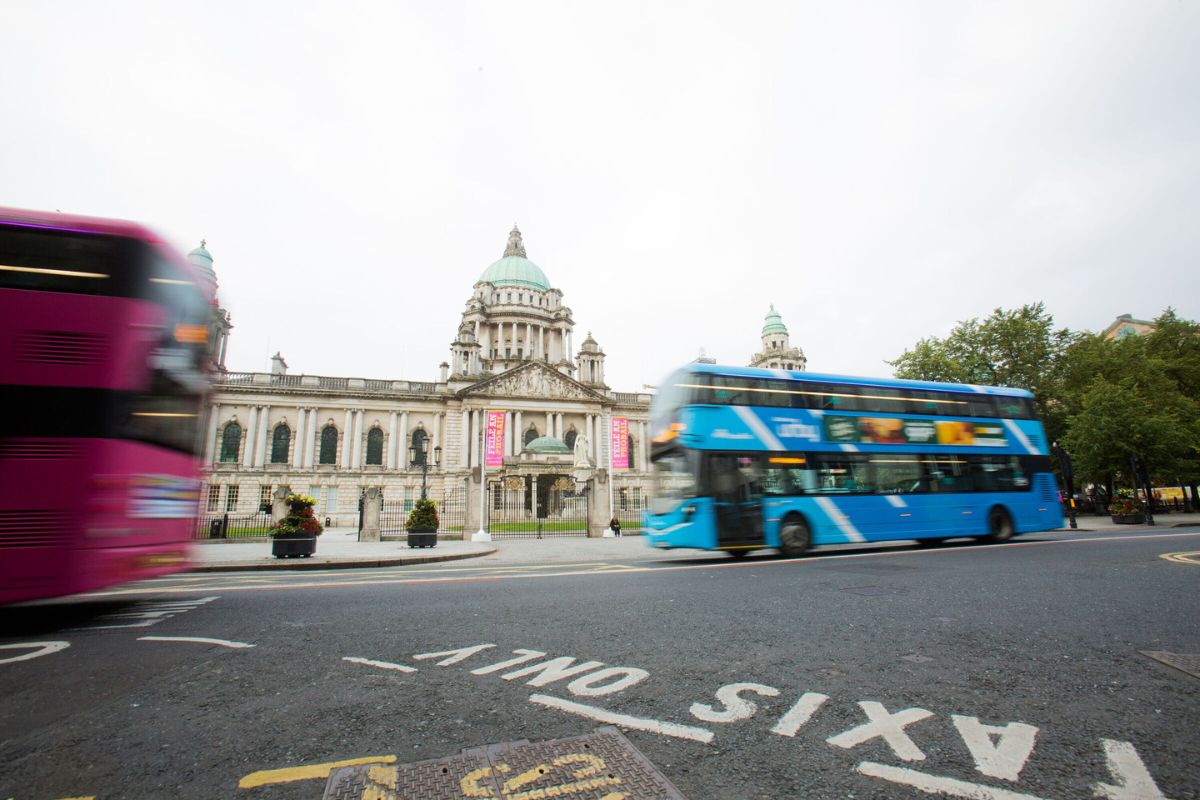
Brenda recognises that whilst the city is still early on its decarbonisation journey, she notes that “the appetite to engage is huge, but we recognise the challenge is how you take that simply beyond talking about change.” This insight mirrors a lot of the wider net zero debate. Consistent polling shows that when asked, people recognise the importance of dealing with climate change and they are keen to see action happen, however when it comes closer to committing to personal actions, it becomes harder for people to commit fully.
With her remit on retrofit, Brenda notes the scale of the challenge to retrofit the city’s housing stock and the pressure that naturally puts upon the recruitment of labour to deliver it. “We have to recognise this is an ageing industry, and it is proving hard to get new people into the sector. There is a natural replacement cycle we are managing and like other local authorities we face similar challenges. In Northern Ireland we have a particular challenge with talent looking also to the UK and the Republic of Ireland for career prospects and opportunities.”
The city and its infrastructure, though, are an asset and is a driver for the Council’s work. “We are looking to attract more people to live in the city centre. This means increasing connectivity” says Debbie. She recognises this will require investment in further services, but it will be built upon the foundation of Belfast’s public transport system which is decarbonising fast. Around half of the city’s bus fleet has already been converted to electric, hybrid or hydrogen and the fleet will be net zero by 2050. More than 200 vehicles, including bin lorries and street sweepers, are now being powered by vegetable oil, Belfast City Council has said. This represents almost 50% of the council’s heavy goods vehicle fleet. The biggest challenge is to convince people to switch to public transport as Belfast has a long history of high car dependence. This points towards a behaviour change challenge as the council seeks to increase the number of pedestrianisation areas in the city centre and collaborate with other stakeholders to encourage more and more people out of their cars.
What is the impact of these plans, and how will Belfast measure the impact of their interventions? Brenda notes that the city is “at the start of its social value journey” but they are guided by some clear principles. Firstly, their work will target people across all income levels, and this is where the investment in the Local Area Energy Plan pays dividends. The plan has provided specific socio-economic profiles, which has really assisted in identifying where the council should place its efforts and locate pilot projects. Debbie says that a lot of the work of the council has been doing is to get them ready; ready to go when the funding is in place so they can begin to deliver at a scale which has impact on the targets.
Collaboration is a key theme of Brenda’s programme of work. Belfast has pulled together a Retrofit Hub which involves a broad range of partners. In designing the hub, it has been a cornerstone of the thinking that local people and especially local contractors do not lose out on retrofit programmes, encouraging the involvement of local firms. This really begins to identify how you can build an effective circular economy at a local level, helping to keep the benefits of the investment in the local economy.
Brenda recognises the importance of “involving people early” in any discussions and programme design, placing a real importance on “face to face engagement” to help deliver on these aspirations. They are also working with the third sector as well in their engagement plans as well as drawing upon the experiences of other cities as well to inform their thinking. Belfast also routinely makes an annual disclosure to the Carbon Disclosure Project (currently rated as a top tier city on the global index) and the UK Climate Emergency Scorecards (ranked currently as the strongest performing council area in Northern Ireland). Belfast is also a member of the Resilient Cities Network, ICLEI and the Core Cities partnership.
Belfast has also signed a Statement of Intent to work in partnership with Liverpool, Manchester and Dublin and this openness to learning from others shows a positivity to tackling the issues that the city needs to address if it is to meet the ambition of The Belfast Agenda.
But Debbie does note that it remains important to ensure that residents and communities remain involved and that you work hard to “retain consent” from the community itself to reach the cities broader net zero ambitions. She remains mindful that not just Belfast, but any city should not fall into a “democratic deficit”, recognising that you must, to be successful in any transition, “build support from local communities for the shift to a more sustainable and circular economy” and ensure that people from all backgrounds are able to benefit from the transition.
Our Cities, placemaking, living and the net zero challenge programme is supported by E.ON, Equans and Mears
